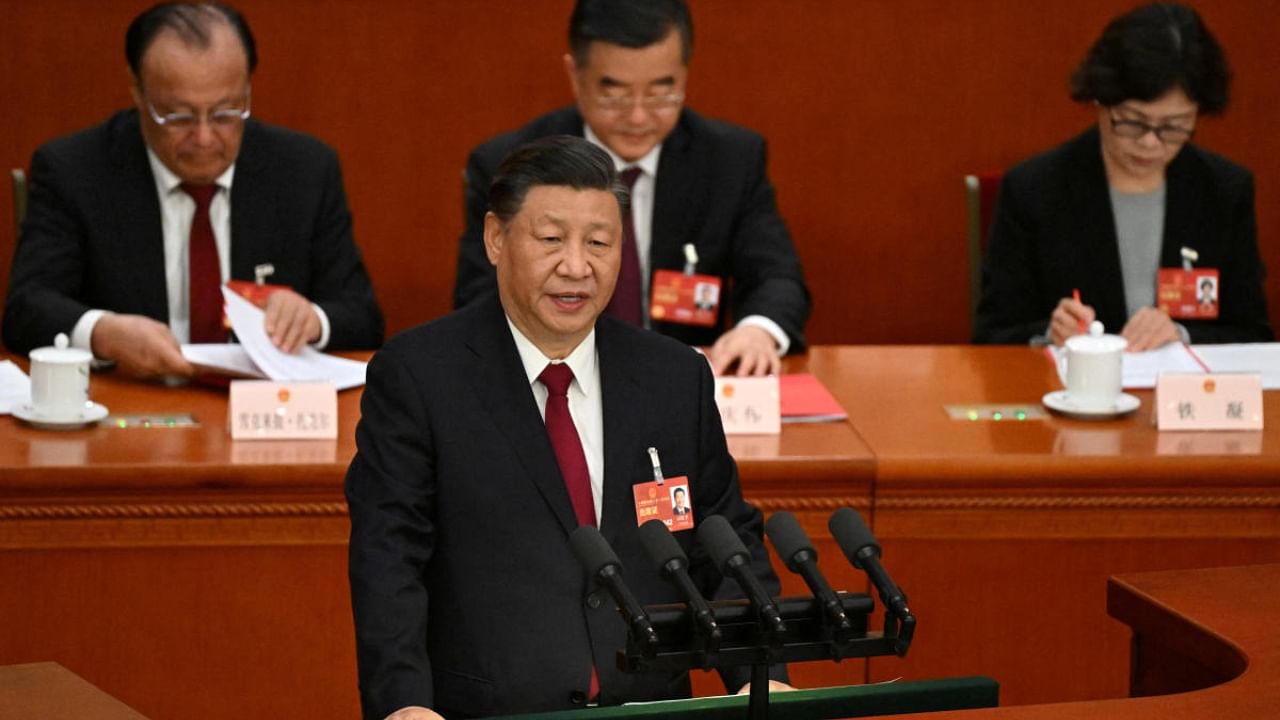
Chinese President Xi Jinping on Wednesday proposed a Global Civilisation Initiative (GCI), calling for respect for the diversity of civilisations at a world political parties' conference organised by the ruling Communist Party of China (CPC).
In a video address to the ‘Dialogue with World Political Parties' meeting, 69-year-old Xi, who last week was endorsed for an unprecedented third term as President and military chief by China's ceremonial Parliament, said tolerance, coexistence, exchanges and mutual learning among different civilisations play an irreplaceable role in advancing humanity's modernisation process.
The political parties' conference was held by the CPC ahead of US President Joe Biden's proposed second Summit for Democracy with the governments of Costa Rica, the Netherlands, South Korea, and Zambia on March 29-30, 2023.
Several world leaders including Nepalese Prime Minister Pushpa Kamal Dahal ‘Prachanda’ have agreed to take part in it virtually, according to reports.
China, which was not invited to the first summit of democracy held by Biden in 2021, accused Washington of using democracy as a "weapon of mass destruction" to "stoke divisions and confrontation".
Over 100 world leaders, including Prime Minister Narendra Modi, attended the first summit.
The Chinese Foreign Ministry on Wednesday sharply criticised the "so-called Summit for Democracy", saying it blatantly drew an ideological line between countries and created division in the world.
"It was a preposterous show in violation of the spirit of democracy and exposed the US’s hegemony in the guise of democracy, which has been criticised and opposed by many countries,” Chinese Foreign Ministry spokesman Wang Wenbin told a media conference here.
The GCI is the third global initiative proposed by Xi in recent months after the Global Development Initiative (GDI) and the Global Security Initiative (GSI) under which China has clinched a peace deal between arch-rivals Iran and Saudi Arabia.
As a part of the agreement brokered by China, the two countries have agreed to establish diplomatic ties and improve their relations.
In his address to the world political parties' meet, Xi was quoted by the official media as saying that countries need to explore the building of a global network for inter-civilisation dialogue and cooperation, enrich the contents of exchanges and expand avenues of cooperation to promote mutual understanding and friendship among people of all countries.
He stressed that countries need to fully harness the relevance of their histories and cultures to the present times, and push for the creative transformation and innovative development of their fine traditional cultures.
The inheritance and innovation of civilisations should be highly valued, he said.
He stressed that countries need to fully harness the relevance of their histories and cultures to the present times, and push for the creative transformation and innovative development of their fine traditional cultures.
Xi also advocated robust international people-to-people exchanges and cooperation, saying that countries need to explore the building of a global network for inter-civilisational dialogue and cooperation, expand avenues of cooperation to promote mutual understanding and friendship among people of all countries.
Hitting out at the developed countries, he said modernisation is not "an exclusive patent" of a small handful of countries.
Modernisation cannot be realised by a cookie cutter approach or simple "copy and paste," he said, adding that for any country to achieve modernisation, it needs not only follow the general laws governing the process, but more importantly consider its own national conditions and unique features.
Xi said the CPC is committed to strengthening exchanges and cooperation with other political parties to pursue the just cause together.
CPC maintains fraternal ties with political parties all over the world, including the parties in India.
He called for leveraging the strength of a new type of party-to-party relations for building a new type of international relations and expanding global partnerships by fostering stronger partners with world political parties.